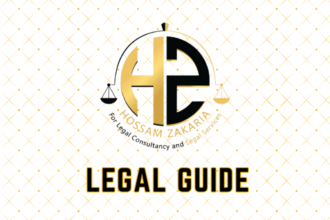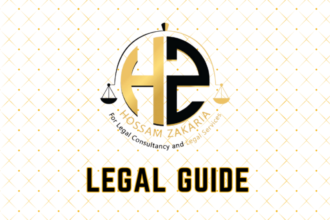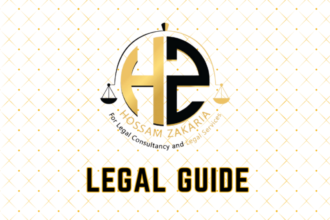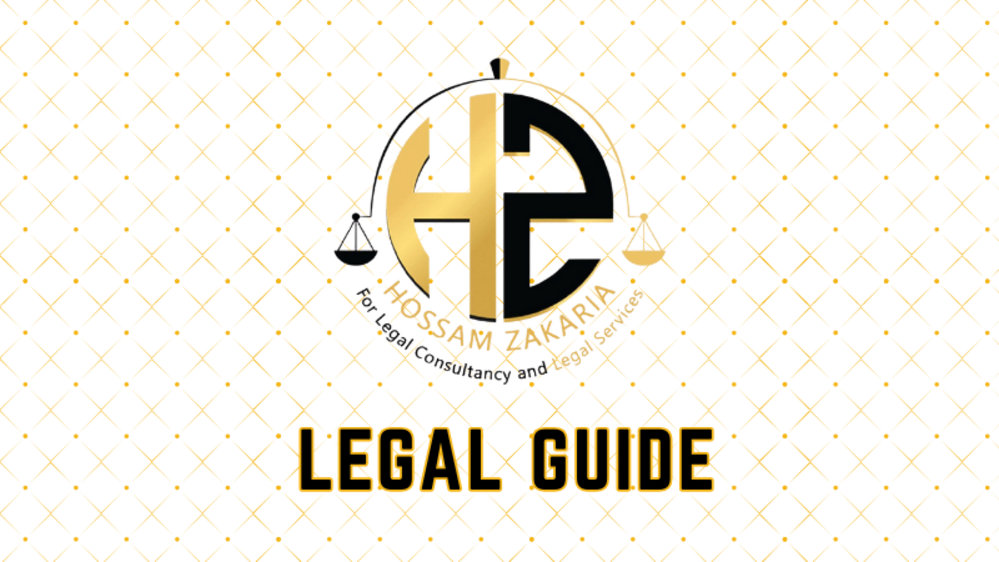Introduction
In recent years, corporate transparency and anti-money laundering (AML) compliance have become top priorities for both regulators and businesses across the United Arab Emirates (UAE). Ultimate Beneficial Ownership (UBO) legislation represents a cornerstone of this drive, underpinning the UAE’s commitment to international standards set by the Financial Action Task Force (FATF) and aligning with best practices for combatting illicit financial flows. Recent updates—particularly the Cabinet Resolution No. 58 of 2020 and subsequent amendments—have intensified the legal landscape, placing a renewed responsibility on companies, executives, compliance officers, and legal practitioners to ensure robust UBO compliance.
This article offers in-depth, consultancy-grade analysis of UAE UBO compliance requirements. Drawing upon official sources—such as the UAE Ministry of Justice, Ministry of Economy, Federal Legal Gazette, and UAE government portal—we dissect relevant regulations, outline practical compliance strategies, and provide actionable insights for organizations navigating these obligations. With the UAE’s increased regulatory scrutiny and the threat of stringent penalties for non-compliance, staying abreast of UBO developments is vital for business continuity and risk management.
Why is UBO compliance critical in 2025? It is not simply a regulatory checkbox. UBO compliance interlinks with banking, licensing, international partnerships, and market credibility. Legal developments in this area are shaping the future of business in the UAE, and effective compliance is now a strategic imperative for both domestic and international firms operating in the region.
Table of Contents
- Ultimate Beneficial Ownership Legal Landscape in the UAE
- Key Provisions of UBO Regulations
- Comparative Analysis: Old vs. New UBO Laws
- Practical Implementation: UBO Compliance in the UAE
- Risks and Ramifications of Non-Compliance
- Legal Strategies for Robust UBO Compliance
- Case Studies and Hypothetical Scenarios
- Conclusion: The Future of UBO Compliance in the UAE
Ultimate Beneficial Ownership Legal Landscape in the UAE
Defining UBO and Its Regional Context
Ultimate Beneficial Ownership refers to the natural person(s) who ultimately owns or exerts effective control over a legal entity, whether directly or indirectly. UBO identification is essential for combatting terror financing, tax evasion, and other financial crimes—a global imperative echoed within the UAE’s legislative agenda.
The foundation of the UAE UBO regime emerged with Cabinet Resolution No. 34 of 2020, later superseded and expanded by Cabinet Resolution No. 58 of 2020 Concerning the Regulation of Procedures Related to Real Beneficiaries. This stepping stone places explicit obligations on UAE-registered entities (excluding those owned by local or federal government or their subsidiaries and entities in Financial Free Zones like DIFC and ADGM) to maintain, declare, and update their UBO records.
Building on this, 2023 and 2024 have seen additional clarifications, enhanced enforcement, and integration with broader AML/CFT efforts, as evident from Ministerial Circulars and Federal compliance initiatives.
Regulatory Drivers and Objectives
Key objectives behind these legislative evolutions include:
- Aligning with FATF recommendations and international AML/CFT standards, boosting the UAE’s standing in the global financial community.
- Fostering integrity and transparency in the UAE’s business ecosystem.
- Facilitating effective cooperation among regulators, law enforcement, and foreign authorities.
- Minimizing the use of legal entities for money laundering, illicit capital hiding, or terrorist financing.
Scope of Application
The principal source documents governing UBO compliance in the UAE are:
- Cabinet Resolution No. 58 of 2020
- Federal Decree-Law No. 20 of 2018 (AML Law), as amended
- Ministerial Guidelines and Circulars on UBO obligations (UAE Ministry of Economy)
These apply to mainland companies, most free zone companies (excluding DIFC/ADGM), and certain other legal forms.
Key Provisions of UBO Regulations
The Legal Definition of UBO
Under Article 5 of Cabinet Resolution No. 58 of 2020, the “Ultimate Beneficial Owner” is defined, in summary, as any natural person who ultimately owns or controls 25% or more of the company’s shares or voting rights, whether directly or via a chain of ownership, or who exercises ultimate control over the entity through other means (e.g., significant influence over management).
If no person fits these criteria, the UBO is deemed to be the natural person(s) who exercises ultimate control over the entity’s management.
UBO Register and Reporting Obligations
- Creation and Maintenance of the UBO Register: Each applicable company must maintain a dedicated register, including up-to-date details of every UBO (full name, nationality, date of birth, residential address, date and manner of becoming the UBO, and the basis of control or ownership).
- Shareholder/Partner Register: Maintain a parallel record of all partners/shareholders, their nationalities, addresses, and ownership details.
- Nominee Director Register: Include any person acting on behalf of another in their directorial capacity.
These registers must be lodged with the relevant licensing authorities—typically at the time of company formation and updated within 15 days of any amendment.
Ongoing Compliance and Notification
Companies must:
- Keep UBO and related registers accurate and up to date.
- Notify licensing authorities of any changes to UBO or registers within 15 days.
- Appoint an individual (often the general manager or compliance officer) responsible for compliance with UBO regulations.
- Share UBO details with authorities or law enforcement upon request, maintaining confidentiality as required by law.
Retention and Access Obligations
UBO registers must be retained for at least five years from the date of dissolution or winding up of the company and must be made available to competent authorities (judicial, regulatory) when requested. Unauthorised disclosure of this information is strictly prohibited.
Comparative Analysis: Old vs. New UBO Laws
Legislative evolution in the UAE has refined the obligations imposed on companies. The table below summarizes key differences between the former and current regimes.
| Aspect | Pre-2020 (Old Regime) | 2020–2025 (Current Regime) |
|---|---|---|
| Primary Legislation | Largely internal, varied by emirate or free zone; no unified standard | Cabinet Resolution No. 58 of 2020 (federal standardization) |
| Scope | No consistent scope; limited enforcement | Widespread: mainland & most free zone companies, with specific exceptions |
| UBO Threshold | Varied (often unclear) | 25%+ ownership/control, or equivalent management control |
| Register Format | Informal/internally maintained | Formalized, must meet strict content/structure |
| Filing Deadline | No standardized deadline | Within 60 days of law, 15 days for updates |
| Sanctions/Penalties | Weak or not enforced | Severe administrative and financial penalties |
Key Takeaways from Legal Evolution
- The move to a federal system closes loopholes exploited in the past.
- New regime includes clear obligations, deadlines, and enforcement.
- Companies can no longer “wait and see”—compliance is now actively monitored.
Practical Implementation: UBO Compliance in the UAE
Mapping the Compliance Process
Applying UBO compliance is not a one-time exercise. It necessitates the development of internal controls, periodic reviews, and persistent engagement across company functions. Below is a suggested process flow for robust UBO compliance (visual: companies are encouraged to use a process flow diagram incorporating these steps):
- Determine Scope: Assess if your entity is within the scope of the law (consult with legal counsel).
- Identify UBO(s): Collate ownership structures, analyze shares/voting rights/control chains both direct and indirect.
- Compile Registers: Prepare UBO, shareholder/partner, and nominee director registers in required formats.
- Internal Validation: Verify information internally—HR, legal, and finance must collaborate to confirm accuracy.
- Appoint Compliance Officer: Formally assign responsibility to an individual or department.
- Submission: File relevant registers with licensing authorities; retain proof of compliance.
- Ongoing Update: Institute regular review/audit processes (best practice: quarterly) and update records/events within 15 days as per legal requirements.
- Training & Awareness: Regular training for relevant staff on what constitutes a UBO and why compliance matters.
Real-World Insights
UAE companies with complex structures—including multi-layered offshore arrangements or partnership arrangements—face heightened compliance demands. In such cases, enhanced due diligence and legal opinions may be warranted. Notably, group structures with nominee or corporate shareholders must look through intermediate entities to identify natural-person UBOs, not stop at the first corporate layer. This is a frequent challenge for international companies investing in the UAE through holding vehicles.
Practical Checklist: UBO Compliance in 2025
| Key Step | Best Practice |
|---|---|
| UBO Identification | Conduct rigorous ownership mapping; consider professional due diligence for indirect/complex chains. |
| Register Preparation | Maintain registers in prescribed formats; update immediately upon change. |
| Authority Liaison | Designate a point person for submissions and government communication. |
| Data Security | Implement confidentiality safeguards and secure storage protocols. |
| Internal Training | Run periodic compliance workshops for key HR/admin/legal teams. |
| Ongoing Monitoring | Establish quarterly review cycles and reporting triggers. |
Risks and Ramifications of Non-Compliance
Enforcement Trends and Regulatory Penalties
Since full enforcement of Cabinet Resolution No. 58 of 2020, the UAE has demonstrated a willingness to levy heavy sanctions on non-compliant entities. The Ministry of Economy and local Emirate authorities routinely issue administrative penalties and in some instances, may pursue criminal proceedings under umbrella AML legislation.
Penalties Table: 2025 Updates
| Violation | Description | Penalty/Consequences |
|---|---|---|
| Failure to Submit/Register UBO | No initial register filing, late submission, or incomplete records | Up to AED 100,000 administrative fine; possible suspension of business license |
| Non-Update of Registers | Failure to notify authorities of subsequent changes within deadline | Fines up to AED 50,000 per occurrence |
| False/Deceptive Information | Willfully providing incorrect UBO data | Administrative penalty; potential criminal prosecution under AML law |
| Non-Retention of Records | Failure to keep registers for requisite period post-dissolution | Administrative fines |
| Disclosure Breach | Unauthorized sharing of confidential UBO register information | Fines; potential criminal liability |
Visual suggestion: A penalty matrix chart can help visualize the relative severity and potential impacts for various infractions.
Collateral and Reputational Risks
- Regulatory investigations can result in suspension or revocation of business licenses, freezing of assets, or public censure.
- Non-compliance is often communicated to partner entities, banks, and counterparties, risking adverse business relationships.
- Sustained violations can impede inward investment, contracts with government entities, and access to the UAE banking sector.
Legal Strategies for Robust UBO Compliance
Proactive Compliance as a Competitive Advantage
Recognizing UBO compliance not simply as a regulatory burden but as a strategic risk management tool differentiates leading firms in the UAE market. Steps for best-in-class compliance include:
- Institutionalizing Compliance: Treat UBO tracking as an integrated function—not an annual chore. Embed UBO checks in onboarding, HR, and governance workflows.
- Leveraging Technology: Deploy secure compliance management systems that automate alerts for beneficial ownership or shareholding changes.
- Documenting Rationale: For ambiguous or complex structures, maintain a file note or legal opinion justifying UBO decisions; authorities may request supporting documentation.
- Legal Audit Reviews: Engage external counsel to conduct periodic independent audits, benchmarking internal controls against evolving UAE legal requirements.
- Centralizing Governance: Multinational groups should establish centralized UBO compliance oversight to ensure harmonization across subsidiaries and regions.
- Training and Education: Regular, tailored workshops for directors, management, HR, and legal teams foster a culture of compliance.
- Early Engagement with Regulators: Proactively discuss complex UBO scenarios with licensing authorities or relevant ministries to avoid errors and foster goodwill.
Case Studies and Hypothetical Scenarios
Case Study 1: Complex Group Structure
Scenario: A UAE mainland LLC is partly owned by a BVI entity, which itself is controlled by a series of trusts and private individuals. Corporate records stop at the BVI layer, with no clear trace to natural persons.
Issue: The company’s filing does not name any natural UBOs, citing only the BVI corporate directors.
Consultancy Solution: This practice violates the spirit and letter of UAE UBO law. The obligation is to “look through” layers until the natural persons who exercise effective control or own (directly or indirectly) more than 25% of the shares, or otherwise have influential voting rights, are identified. Our recommendation involves:
- Commissioning certified legal opinions and obtaining beneficiary statements from the BVI entity.
- Requiring upstream disclosure from trusts or similar vehicles to identify individual beneficiaries.
- Preparing an explanatory file for UAE authorities, with supporting documentation, if tracing reaches a legal dead-end (e.g., bearer shares; Review if sanctions apply).
Case Study 2: Timely Updates
Scenario: A company undergoes a change in shareholding (transfer of 30% ownership) but fails to update its UBO register and notify authorities within the mandated 15-day window.
Risk: Exposure to fines up to AED 50,000, and possible regulatory flagging for more serious treatment in subsequent reviews.
Consultancy Solution: Companies should implement event-driven compliance protocols—any change to shareholding, voting rights, or management triggers instant review and update of registers, with designated internal or external compliance champions overseeing process integrity.
Example: Nominee Directors
Scenario: An Emirati national is a nominee director for a foreign-owned free zone entity. UBO register submitted lists only this nominee director as beneficial owner.
Guidance: The law requires the company to look past nominee arrangements and declare actual controllers/owners. Listing a nominee as UBO fails compliance and invites regulatory scrutiny. Entities must exercise diligence in disclosing actual controlling individuals behind the nominee, in alignment with Cabinet Resolution No. 58 of 2020.
Conclusion: The Future of UBO Compliance in the UAE
Ultimate Beneficial Ownership compliance is no longer an emerging concept; it is a pillar of the UAE’s legal, compliance, and corporate governance landscape. Increased harmonization with global FATF standards and concerted regulatory enforcement mean that companies must transform their approach from reactive to proactive. The legal and business implications are profound:
- UBO requirements are being actively enforced and rigorously audited by UAE authorities as of 2025.
- Non-compliance risks severe penalties, business interruptions, or reputational harm that can undermine both domestic operations and international partnerships.
- Cultivating a transparent, accountable UBO compliance culture positions entities for competitive advantage and regulatory goodwill.
Forward-looking companies are strongly encouraged to audit their existing UBO frameworks, seek expert legal counsel for complex matters, and adopt best-in-class compliance systems. As the UAE continues to attract regional and global investment, UBO compliance will remain a critical expectation for all responsible businesses operating within its jurisdiction.
Strategic Recommendation: Early engagement with qualified legal advisors, continual internal education, and investment in compliance technologies are now essential business practices for 2025 and beyond. Staying ahead of regulatory updates ensures business sustainability and trust—in the UAE and on the global stage.



